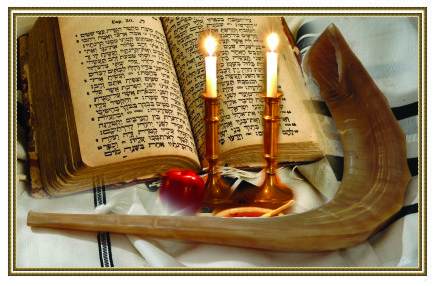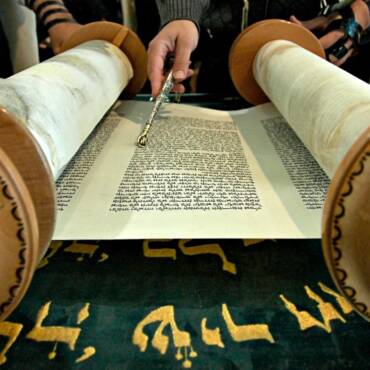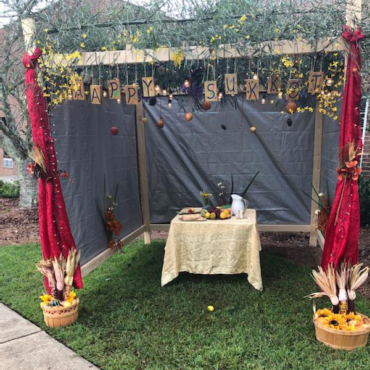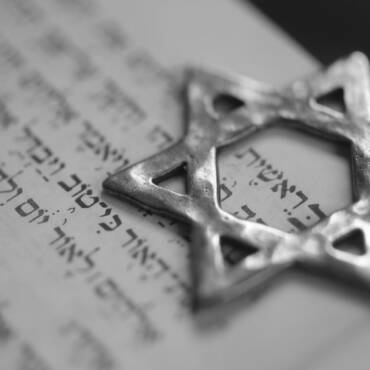The Feast of Trumpets

By Sam Nadler
“Speak to the sons of Israel, saying, ‘In the seventh month on the first of the month, you shall have a rest, a reminder by blowing of trumpets, a holy convocation. You shall not do any laborious work, but shall present an offering by fire to the LORD’” (Lev. 23:24-25).
After coming to faith in Messiah Yeshua, I was delighted to see that trumpets played such a significant role in Scriptures. In fact, what is traditionally called Rosh HaShanah, or Jewish New Year, is also called in the Scriptures Yom Ha Teruah, which means the Day of the Blowing of Trumpets.
Jewish tradition purports that the blowing of trumpets is a reminder of the shofars (the shofar is made from a ram’s horn) that Joshua and the Israelites used at Jericho, and also the horn of the ram that Abraham sacrificed in place of Isaac.
However, Scripture reveals much more about the prophetic meaning of the Feast of Trumpets. This feast points forward to a time when Israel will be gathered back to the land (Isaiah 27:13). Also, it points to the time when the Body of Messiah will be gathered to her Lord in the Resurrection (1 Cor. 15:51, 52; 1 Thes. 4:16-18). Essentially, there are two types of trumpets mentioned in the Bible and used on the Feast of Trumpets: the ram’s horn and the silver trumpets.
The Silver Trumpets
The silver trumpets in Numbers 10:1 remind us of our redemption before God, “Make yourself two trumpets of silver, of hammered work you shall make them; and you shall use them for summoning the congregation and for having the camps set out.” Why was silver used? It is likely that the silver was from the temple tax or the half shekel according to the sanctuary that all redeemed people had to pay to demonstrate that they are ransomed from bondage by the Lord. It is important to understand that no one could buy his own redemption; therefore, the half shekel was a memorial of his redemption:
“This is what everyone who is numbered shall give: half a shekel according to the shekel of the sanctuary (the shekel is twenty gerahs), half a shekel as a contribution to the LORD. Everyone who is numbered, from twenty years old and over, shall give the contribution to the LORD. The rich shall not pay more and the poor shall not pay less than the half shekel, when you give the contribution to the LORD to make atonement for yourselves” (Exodus 30:13-16).
Thus, whenever these silver trumpets were blown either for assembly or alarm, for worship or for war, the redeemed of the Lord would respond. Since the silver trumpets were used primarily in the Temple, when the Temple was destroyed in AD 70, the use of much of the Temple paraphernalia, including the silver trumpets, was discontinued. Generally, trumpets are used in Scripture for many occasions and purposes: a call to assembly; a command for Israel to move out; a call to war; preparation for an announcement; a warning of judgement to come; and a call to celebration and worship. Because so little is said about this feast in the Hebrew Scriptures, there has always been a sense of mystery regarding what the Feast of Trumpets refers to. The rabbis have looked to Israel’s past spiritual experiences for the answer. Some believe it refers to Exodus 19:16, where trumpets announced God’s descent on Mt. Sinai to give the Torah to Moses. Other rabbinical traditions teach the blowing of trumpets is a reminder of the shofarot (or ram’s horns) blown by Joshua and the Israelites at Jericho (Joshua 6); and also, the Feast of Trumpets is a reminder of the ram that Abraham sacrificed in place of his son Isaac (Gen. 22).
Though these are reminders of God’s wonderful works in the past, Scripture reveals much more about this mysterious Feast of Trumpets. This feast does not point us to the past, but rather to the future. Although, resurrection is a concept taught throughout the Scriptures (i.e., Dan. 12:2), there is an aspect of the resurrection heralded by the Feast of Trumpets. The mystery is known as “The Resurrection of the Body of Messiah.” It is a reminder that one day the trumpet of God will sound and we should always be ready to respond.
The Jewish New Year
As we learned, the Feast of Trumpets is also known as Rosh HaShanah, or the Jewish New Year, which falls on the Hebrew month Tishri (September-October). How did we come up with the New Year in the seventh month? The answer is simple: this idea developed when the Jewish people came out of the Babylonian captivity. We adopted the Babylonian civil New Year as our own. Tishri is actually a Babylonian word meaning “beginning.”
Traditional Observance
Rosh HaShanah introduces the most serious season in the Jewish calendar known as Yamim Noraim, the Days of Awe. This period includes ten days of introspection and repentance, leading to Yom Kippur on the tenth day. It is a time of soul searching and of making things right with God and one’s neighbors. Today, Jewish people celebrate Rosh HaShanah through various traditions. One of the traditions is partaking of foods such as honey cake and apples dipped in honey, which symbolize our peoples’ hope for a sweet and happy new year. We greet one another at this time of year with the traditional phrase, “May you be inscribed [in the Book of Life] for a good year!” (L’shana tovah tikatayvu).
Sound of the Shofar
The day is coming when man must reckon with his Maker. In God’s great love and patience, He bears long with us, “not willing that any should perish, but that all should come to repentance” (2 Peter 3:9). God does, however, allow circumstances to get to a point in our lives where we have nowhere else to turn, but to Him. This will be Israel’s situation in the time yet to come (Joel 2:1, 2, 12-15). As believers we want Israel to return, not only to the land, but to the Lord. May we reach out to people today and seek to lead them to Messiah while there is time, to believe now, before the day of wrath appears. Let us re-evaluate our lives, priorities and schedules, as we care for those who do not yet know the Lord. Share the Good News of Messiah with Jews and Gentiles alike, as we wait for the Feast of Trumpets and our Messiah’s glorious return!
(Excerpted from Sam Nadler’s book: Messiah in the Feasts of Israel)




Add Comment